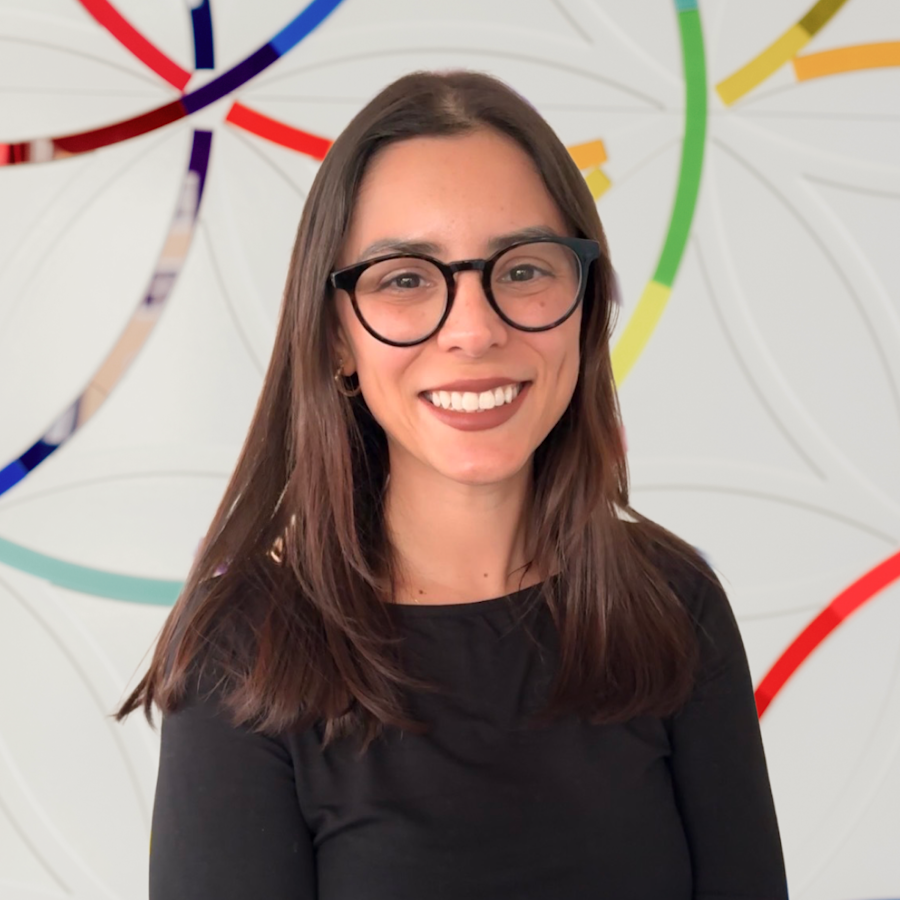Illustrations by Emma Günther
No one knows your body better than you do
Clue helped put concrete data behind what I knew to be true and what hadn’t been taken seriously by my doctors
At Clue, we believe self-tracking is one of the most powerful tools we have to take charge of our own health. Hearing from our community about the ways Clue has helped people to detect health conditions and get the healthcare they need, keeps us motivated to continue doing what we do. We were deeply moved by Annie’s story, and we’re so grateful to her for sharing it with us—and with you.
—

The threat of cancer always loomed in the back of my mind and over my family when I was growing up. My mother had ovarian cancer twice when I was a child. We knew she had the BRCA1 gene variant, so it was always an expectation that at some point in my life, I would have genetic testing to find out if I too carried the variant. While I didn’t inherit the gene variant, my sister did. With my family history, I became very attentive to my reproductive health.
A note from the Clue Science Team: A BRCA variant is a harmful variant of either the BRCA1 or BRCA2 genes, which are tumor suppressor genes. People who inherit harmful variants of one of these genes have an increased risk of several cancers, primarily breast and ovarian cancer, but also several other types of cancer.
A second puberty
At the age of 16, my doctor recommended that I go on hormonal birth control to suspend ovulation, which would reduce my risk of developing ovarian cancer. So, from an early age, I had a different hormonal experience than someone who wasn’t on birth control—and it wasn’t a great experience. I always had a sense that it made me anxious—but that wouldn’t be confirmed until I decided to stop taking it when I was 22 to see what it would be like without it.
I noticed how my baseline anxiety dissipated, and my blood pressure (which had been repeatedly high and shrugged off as nerves around doctors’ visits) decreased significantly. Coming off hormonal birth control was a period of real self-discovery, almost like a second puberty. Experiencing my own hormones was all new for me—I didn’t have a baseline to compare it to because I hadn’t had a period for so long.
For the next two years, I experienced very predictable cycles. Until one day, I started to notice some things that were out of the ordinary for me. I started to get spotting and cramping at what seemed to be random times during my cycle.
I also started to experience allergy-like symptoms including headaches, sneezing, and sniffles, which seemed to be cyclical. My once very predictable cycles started to become unpredictable.
I made an appointment with my primary care physician, who told me that my symptoms weren’t particularly atypical and that I shouldn’t worry about it. I think this response was influenced by the fact that I didn’t have the BRCA1 variant, so it was unlikely to be anything, at least from a cancer perspective. But my symptoms continued, and in the months that followed, I would see my primary care physician again, an urgent care physician, and a specialist gynecologist.
Each one of them would tell me that my experiences were normal and I was probably overthinking things because of my family history. But deep down, I knew something wasn’t right.
I needed a way to stop doubting myself and a way to track what I was experiencing. So, I went to the app store and downloaded Clue. It turned out to be everything I needed. I was able to track my cycle, but also other experiences that were related to my hormones.
Not just in my head
Tracking my symptoms gave me the confidence to say to myself, “I do know what I’m talking about, I do know my experiences and I have the data right here.” It wasn’t that I was spotting at ovulation; it was random throughout my cycle. It wasn’t that I was cramping at ovulation; it was happening sporadically. Clue helped me put concrete data behind what I knew to be true and what had not previously been taken seriously by my doctors. Armed with a few months of data, I scheduled another appointment.
As I waited for my appointment, another symptom appeared that couldn’t be ignored. On top of my unpredictable cycles, the spotting, the cramping, and the weird allergy symptoms, my belly had begun to swell so large that I looked like I was pregnant.
This time I decided to go to Planned Parenthood because of the type of care they give and the type of professionals that work there. When I started to show them my self-tracked data, I could already sense that I was being taken more seriously.
By that time, a tumor on my ovary had grown to the size of a football and weighed 6 lbs (2.7kg).
When I finally saw my oncologist, he told me that the tumor had probably been growing for several years. If one person had given me a transvaginal ultrasound or even palpated my abdomen, they would have caught it.
What’s particularly frustrating about the whole experience is that I had every tool I needed to self-advocate. I had a parent who had experienced ovarian cancer. I live in the Boston area, which has excellent access to healthcare. I knew the language to use, and I knew the signs and symptoms to look out for. So, when I look back on my experience, what really frustrates me is if I had all these tools and self-awareness, and I still couldn’t convince people to take it seriously, where does that leave others?
Self-tracking for self-advocacy
Being dismissed by multiple doctors had a profound impact on me. The surgery I ended up having to remove the tumor was significant. Due to its size, they had to cut right through my abdominal wall, and my left ovary and fallopian tube had to be removed. Physical recovery took a long time. While I was able to move around the house and take short walks, it was a month before I was able to make any big movements, and about five months before I had enough abdominal strength and the confidence to do the activities I love, like yoga and swimming. I was lucky I didn’t need any further treatment after the surgery itself.
After the surgery, I continued to track my menstrual cycle and cycle-related experiences religiously. Thanks to self-tracking, I was aware of the signs to look out for. So, when a few years later, I started to notice things feeling off again, I was able to ask my doctor for a transvaginal scan right away. I ended up having a second surgery to remove what ended up being a benign (non-cancerous) mass—but this time, we got it while it was still small. I had laparoscopic (keyhole) surgery and was in and out of the hospital on the same day.
No one knows your body better than you
My advice to anyone who feels like their concerns are being ignored is this: No one knows your body better than you do. No one is better able to advocate for yourself than you. I would also tell you that sometimes you have to push to be heard. Be your own friend and counsel yourself in the way you would talk to a friend about self-advocacy. Get a second, third, and fourth opinion. Bring a friend along with you if that’s possible to help make your case. And monitoring your reproductive health is so beneficial beyond the immediate scary stuff.
Tracking with Clue not only jump-started my ability to better self-advocate for myself, but it also helped me realize patterns in my mood, productivity, and so much more.
I’m more aware of my cycles and the ways in which it changes over the month. I think it’s a gift to be attentive to your body and give yourself time and self-care. I feel better with that extra layer of self-awareness. With Clue, I have just a little extra nudge to pay attention to my experiences, and that really has been a gift.
We wish Annie all the best and can’t thank her enough for sharing her story. Has Clue helped you to pick up an issue or to understand your unique body and patterns better? If you’d like to tell us your story, reach out to content@helloclue.com.

